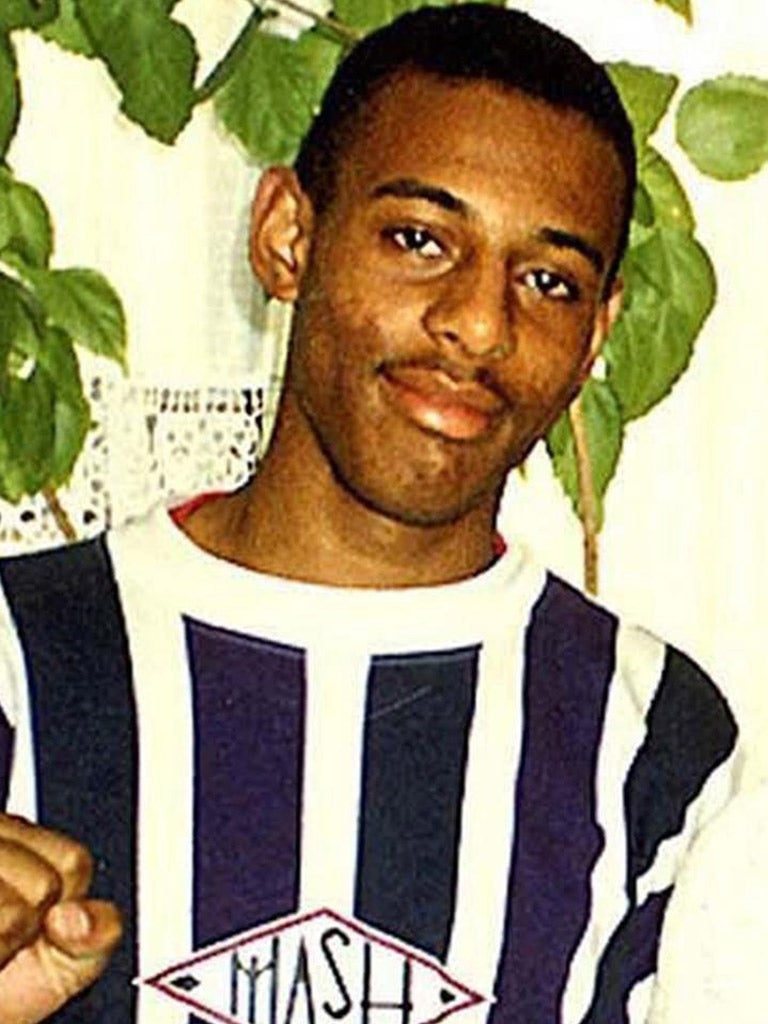Emotions must not affect verdict, Lawrence jurors told
Sympathy for the family and anger at the attack 'have no part to play' in decision, judge warns

Jurors were told yesterday not to allow sympathy for the family of Stephen Lawrence to influence them as they consider their verdicts today for two men accused of murdering the teenager 18 years ago.
Mr Justice Treacy told the jury at the Old Bailey they had to ignore the "enormous publicity" over the years about the murder. Gary Dobson, 36, and David Norris, 35, are accused of being part of group of five or six youths who shouted racist abuse at Mr Lawrence and then chased, surrounded and attacked him.
"Emotions such as sympathy for the Lawrence family have no part to play," the judge told the jury of eight men and four women. "Equally, anger at the nature of the attack on Stephen Lawrence cannot guide your decision."
Stephen Lawrence and his friend Duwayne Brooks were waiting for a bus in Eltham, south-east London, on 22 April 1993 when they were spotted by the white gang. One of the youths allegedly shouted "What, what, nigger?" before they started chasing the two men. Mr Brooks escaped, but Mr Lawrence was stabbed twice and killed.
The court has heard that blood, fibres and hair found on clothing have linked the two men to the murder. The forensic evidence, said to have been discovered during a cold-case review of the killing, was found using scientific techniques not available at the time of the murder, the court has been told.
Both men say they were not at the scene at the time and claim that the evidence resulted from cross-contamination while exhibits were in storage or from lax police practices at the time. They deny murder.
Mr Justice Treacy said that for the jury to find the defendants guilty of murder, they would have to conclude that forensic evidence found on clothes seized from the men in May 1993 could not have got there by accident. They would also have to find that the men took part in the attack on Mr Lawrence and that it was intended either to kill him or cause serious bodily harm.
The judge said the prosecution did not claim that either of the defendants wielded the knife which inflicted the fatal injury. If they intended to cause injury falling short of serious bodily harm, then the group would be guilty of manslaughter, he said.
"Consideration of the consequences for the public, the Lawrence family, the police, the defendants and their families have no part to play in your verdict," the judge said. He also highlighted inconsistencies between the accounts of Mr Brooks and three witnesses who saw the attack from a nearby bus stop.
Mr Brooks said he had been chased away by one of the attackers, whereas the witnesses said he had run off on his own. The judge said the contrasting accounts could be because Mr Brooks felt "a subconscious need to justify himself for running off at the time that he and Stephen were attacked".
But he also told the jury that witness accounts could have changed over the years. He added that it was "not necessary for every loose end to be tied up. This is real life, not a detective novel."
The case continues.
Subscribe to Independent Premium to bookmark this article
Want to bookmark your favourite articles and stories to read or reference later? Start your Independent Premium subscription today.
